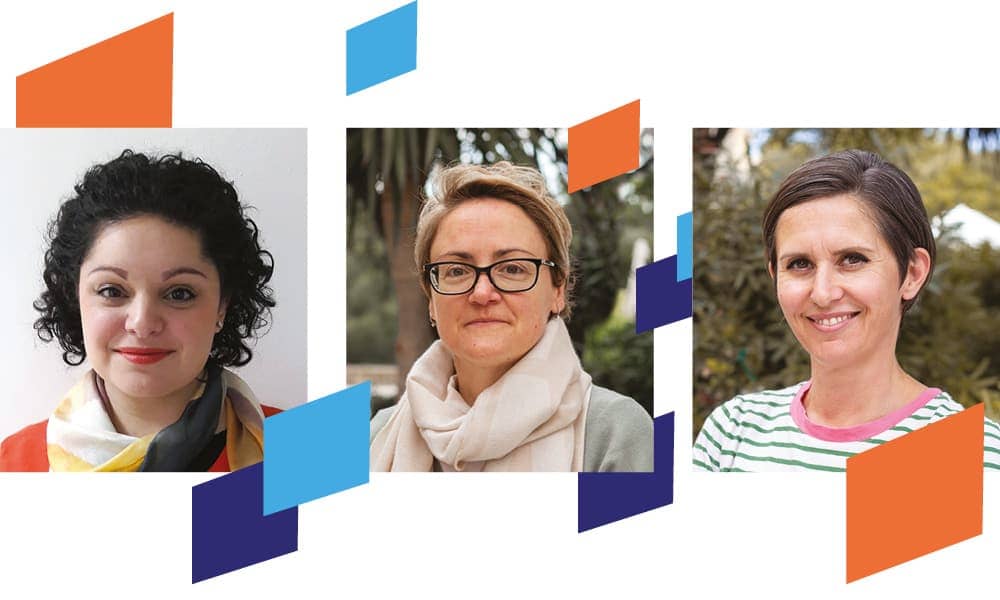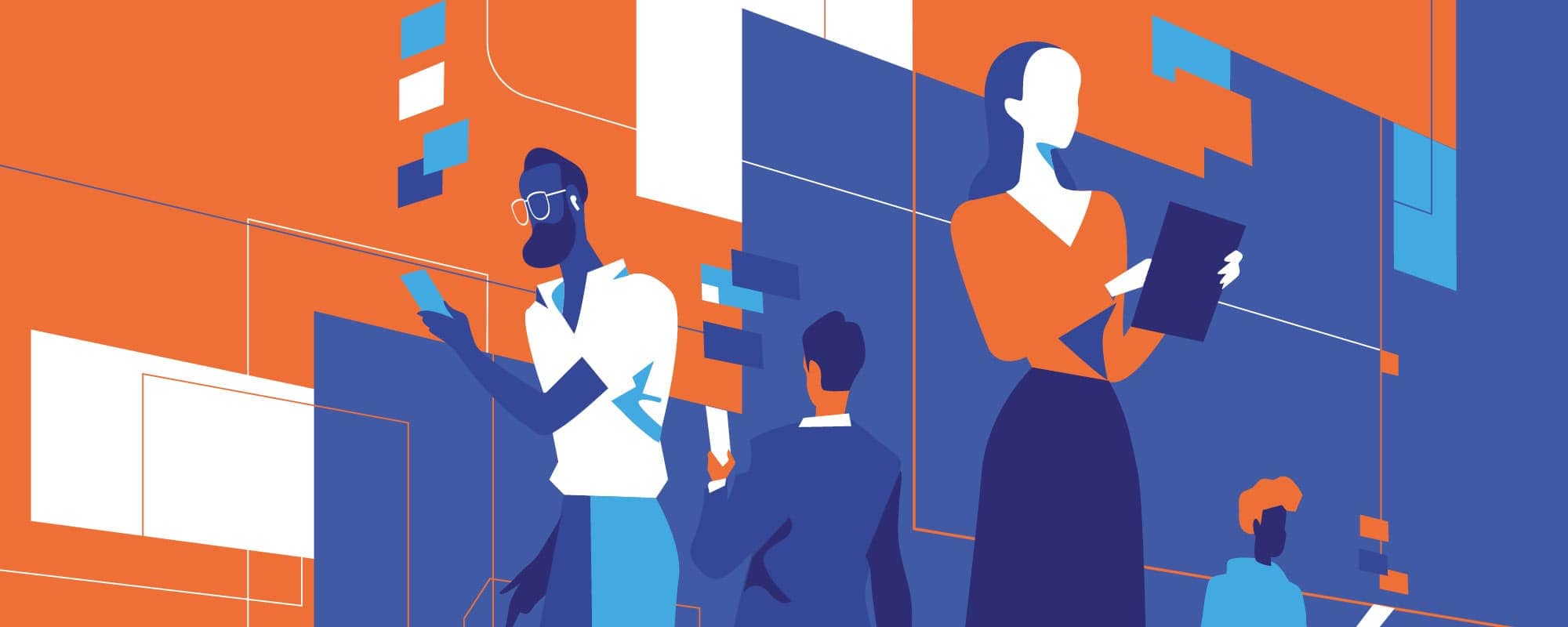The importance of digital literacy has been undisputed for some time now, but the recent pandemic brought this into centre stage on a global level. As more of us shifted to the digital world, inequalities and gaps in our overall knowledge and preparedness were made starkly evident. An Erasmus project is trying to tackle these issues head on and attempting to learn from our recent past…
Lessons from the Pandemic
TikTok dances, cameras stuck on cat filters, speeches delivered on a muted microphone, unwelcome intrusions during a video call… does any of that ring a slightly unpleasant bell? Most of us are more than thrilled to leave these typical pandemic occurrences in our rear-view mirror, but for the researchers behind the HEIDI project, these mishaps and realities have presented an opportunity to learn and create a better future. THINK sat down with Dr Wendy Jo Mifsud (lecturer with the Faculty for the Built Environment), Prof. Maria Attard (Director of the Institute for Climate Change and Sustainable Development), and Heather McNamara (Research Support Officer with the Faculty for the Built Environment) to learn more about this project.
‘I came to this project through my work on Citizen Science,’ Prof. Attard says, explaining that technology and its implications on society have become an area of interest in recent years.
‘The COVID-19 pandemic effectively closed us up as a society and pushed a lot of our lives online, practically overnight. It essentially turned everyone into digital activists, as we all had to engage with technology in some form or another, whether we were skilled at it or not,’ Attard adds. ‘This project is essentially helping us to look at the impact that this shift has had on our society, and to try to understand how these newly acquired skills can be used in the future.’
Dr Mifsud explains that although Project HEIDI took the COVID-19 crisis as its springboard, its focus on digital actions in society was a big draw for her to be a part of the project.
‘My research and work centres around the social implications of planning, so this project, with its focus on building better capacity and capabilities, will deliver lessons that I can apply in other scenarios, localities, and communities,’ she says. Mifsud also explains that the pandemic revealed just how unprepared society was to tackle any given crisis, be it a pandemic, fighting environmental damage, or the effects of diplomatic breakdowns.
‘When we talk about this project, we are essentially saying that we want to learn from the challenges we faced in our most recent crisis in order to be able to tackle any other crises we might end up facing and become more resilient as a society,’ she adds.
Heather McNamara spoke to me about her background in Anthropology and explained that her interest in the project stemmed from her hope to achieve a better understanding of social and digital inequality.
‘I had never heard about citizen science before becoming part of this project, but as time went on, I realised that a lot of us often participate in it without really noticing. I am interested in trying to bridge the divides in communities at a grassroots level, and allowing people to access skills that would help them to move up in society. The pandemic revealed that there were some pockets of society that simply didn’t have the same access to digital knowledge, and this project aims to promote better digital practices by bringing together academics and the general community,’ McNamara goes on.

The HEIDI Project
The HEIDI Project – or its full title: Digital action at HEIs (Higher Education Institutions) as a catalyst for social change in the COVID-19 crisis’ – is an Erasmus project spanning two years (up until May 2023). The project brings together the research of three higher education institutions, namely University College London (UCL), the University of Malta (UM), and University of Paris. The project has also partnered with two NGOs from Greece and Cyprus (Web2Learn and Citizens in Power respectively) which help with outreach and ensuring that the project gathers as much social input from the wider, non-academic community as it can.
‘Speaking about UM’s events, we have had a good response. Obviously, as with most projects, we have a minimum number of participants we need, but we’ve made sure that we’ve aimed to go above the quota to find people from different backgrounds that enrich discussion,’ McNamara explains, adding that so far, the Maltese chapter of the research has collected over 100 participants.
‘About 60% of participants were academics, but now that we’re in the later stages of the project, we’re discussing with public stakeholders, including decision makers from government departments who focus on digital innovation, which is great,’ McNamara adds.
The HEIDI project started by categorising digital actions for analysis in three main categories. Firstly, there were Hackathons, which the researchers defined as digital marathons where individuals worked on projects digitally and produced them in a marathon style. These were being held at other institutions rather than UM.
‘The second definition is the “maker movement”, which is when people band together to make something out of necessity. One of the clearest examples we had over the pandemic was when people in higher education worldwide banded together to make PPE and things like sanitizer,’ Attard says.
The third aspect is citizen science, or put simply: people from the general public contributing to scientific research through things like their smartphones.
‘This can take various forms like when people take photos to document anything like the weather, plants, bird presence, and so on,’ Attard says. ‘By addressing these three main categories, this project is trying to look beyond one specific definition of digital action and to analyse the different ways in which people are now using the digital,’ she adds.
McNamara also delved into what the Maltese chapter had effectively focused on in terms of research.
‘We have held a number of round-table discussions as well as some co-creation workshops. Participants have been asked to record their findings and discussions, and these reports will then be published online with the aim of inspiring further research or even to inspire projects to use similar methodologies.’
She went on to explain that the researchers were currently in the process of preparing for an intensive co-creative workshop, where two university students had been recruited to work with a local entrepreneur under a mentorship scheme.
‘Together the students will use themes gathered from previous round-tables to come up with ideas for digital actions (or products), and they will then discuss the feasibility and transferability of these projects with their mentor, a local entrepreneur.’
Digital activism is an action that seeks to counter social and ecological issues so it can address any potential disasters, sometimes even before it spreads and becomes a full-blown crisis.
Project Aims & Future
Attard explains that the findings and ideas from this project and workshop will in turn be discussed by a panel of academics, stakeholders, and government heads with the aim of coming up with a set of guidelines that will be publicly available to ensure that more of society can use the digital world more effectively.
‘The hope is that people will be able to use these guides to become better digital activists. In the case of students, they will be learning how to use the digital world more effectively to grow their business, for instance,’ she goes on.
Attard explains that the project ultimately served as a forum for people to think of all the ways that technology has served them over the past two years and to analyse the outcomes of their digital actions.
‘Some academics have been discussing things they took for granted such as holding lectures over Zoom and being asked to analyse the issues they had identified in that process,’ Attard says.
‘For the first events, we held five rounds of interviews with stakeholders within higher education institutions. We spoke to librarians, IT support, students, decision makers, and academics from UM and MCAST. Our aim was to understand how the pandemic affected them,’ McNamara clarifies.
‘One aspect that stood out was that there needs to be better digital literacy for projects and research in digital action to produce better results. A way of doing this is to address digital equality. If a person does not have the skills or finance to access digital tools, they are marginalised, and that can lead to exclusion from the micro and macro communities,’ she says, explaining some of the results of the project so far.
‘By equipping people, we can increase numbers of participants in digital events and also build resilience for future crises,’ she adds, explaining that citizen science and general citizen participation can ultimately help to prevent crises.
‘In terms of the environment, for instance, society getting involved and monitoring the environment and anomalies can help avert crises. Ways in which citizen science is already helping locally include people monitoring things like jellyfish, stars, invasive plant species, or litter, for instance.’
Already, the round-tables in Malta, Greece, and Cyprus have shown that communication is an important factor for successful performance of digital action, so as a result, investigation into how higher education institutions and the community interact with each other has been highlighted as an action point.
‘Promoting the importance of research and data collection within younger students has been suggested as a method of building better relationships for civic participation,’ McNamara says, adding that demystifying the research processes could essentially help build trust in communities outside higher education.
‘Essentially, this project represents a unique opportunity to gather data from a pool of researchers and the wider community to obtain a better digital experience for the future,’ she goes on.
‘We hope that the project results in us finding ways to resolve the barriers identified through digital actions. For instance, in the creation of online campaigns that can garner better engagement and make people’s actions online more effective,’ Mifsud adds.
‘In addition, this project is a unique opportunity for higher education to carry out outreach programmes into less-advantaged communities to try and understand how to serve them better,’ Attard says, explaining that UCL is working with communities from East London, an area that is typically more disadvantaged than the western side.
To most readers of this piece, the importance of higher education will undoubtedly be a given. However, its relevance in wider communities is sometimes a little unclear, with researchers gaining a reputation for disconnectedness from real social issues. As the researchers explain, this project, with its hopeful tone and desire to learn from one of the bleakest points in recent history, aims to be a driving force for change. Digital activism is an action that seeks to counter social and ecological issues so it can address any potential disasters, sometimes even before it spreads and becomes a full-blown crisis.
Author
-
Martina writes on a freelance basis for a number of publications including Think Magazine. She works in children’s publishing in London and has a background in journalism. Previous writing credits include MaltaToday and other other local content writing agencies. Her favourite topics to write about include lifestyle, culture and health issues. She also enjoys interviewing people and learning about new topics as part of her research. She holds an MA in Publishing and previously read for a BA in English at the UM. In her free-time, she can be found sipping tea in coffee shops, reading or trying out new hobbies.
View all posts





Comments are closed for this article!